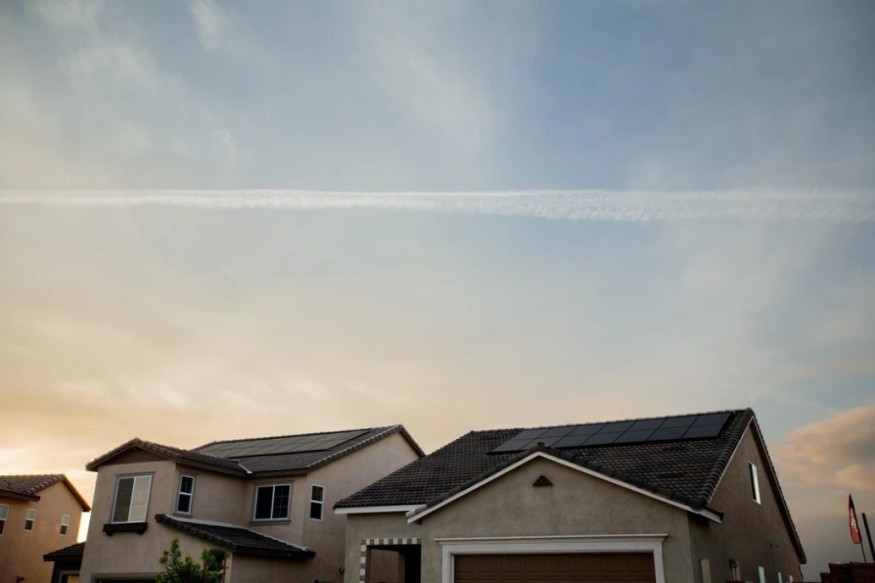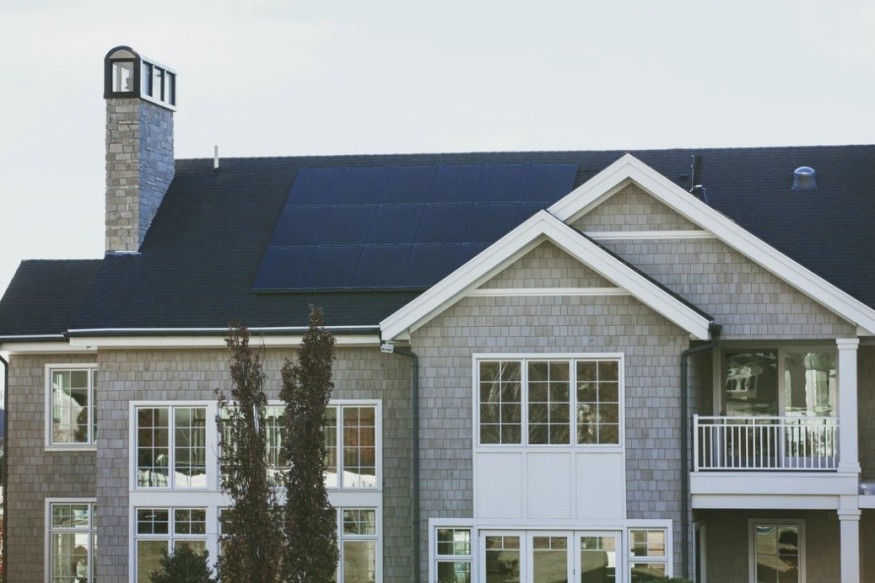
If you are considering going solar, you are probably wondering whether using solar power at home is cost-effective. Other questions you may be asking are: Is my roof appropriate for solar panels? Is solar energy capable of producing enough electricity to fuel my home? How do I find the best solar panels?
When you first start looking at solar panels for your house, the questions that soar through your brain can be daunting and overwhelming.
There are many advantages of powering your house with a green energy source such as solar panels. You will be able to reduce your carbon emissions, lower your energy bill, and feel good knowing that you are making a small contribution to the environmental well-being of the world.
However, deciphering whether solar panels are right for your home can be challenging without a good guide to navigate you through the determining factors.
What are solar panels?
Simply stated, a solar panel generates energy by allowing photons, or light rays, to kick electrons away from atoms. Solar panels are made up of several smaller units known as photovoltaic (PV) cells.
Solar panels are an eco-friendly way to generate energy for your house. As previously said, PV cells are used to convert sunlight into electricity. The energy generated by your solar panels can be used to fuel any appliances in your home that are currently in use.
In the U.S., the average household consumes 10,400 kWh of energy each year. So if you installed a typical 250-watt solar panel, you would need between 28 and 34 panels to produce enough electricity to fuel your entire house.
The Cost of Solar Panels
Solar has started to fall in price over the years, and it is now 70% less expensive than it was about 10 years ago. Therefore, by following smart budgeting tips, homeowners can afford solar panels.
The cost of solar panels for your home can vary according to how much energy you need and use regularly within your home. The more power you need means the more solar panels you will need and the more money you will have to spend.
As of April 2021, the estimated cost of solar panels for homes in the United States is around $3 per watt. This means that, before discounts, a 7-kilowatt (kW) residential solar panel system would cost around $20,000. As the federal solar tax credit of 26% is applied, the price drops to about $15,000.
The first step in determining if your home is a successful choice for solar is to determine how much you pay for electricity.
The biggest concern is whether it would save you money since electricity is very cheap in some places. A rule of thumb to keep in mind when figuring out if solar makes the most economical sense is by looking at your monthly utility bill to see if it is at least around $80.
Residential solar consumers can see solar power benefits and savings until their electricity bill reaches around $80.
Savings from going solar will take anywhere from seven to 20 years to pay off the initial investment. After those years go by, you can save around $20,000.
Solar panels, in addition to lowering your monthly electricity bill, have the added advantage of increasing the value of your house. Installing solar will theoretically raise the value of a home by anywhere between 3% and 5% over equivalent homes that do not have solar panels.
So though solar panels initially cost around $15,000 after the 26% federal solar tax credit is applied, they eventually pay for themselves in the long run.
Tax Credits, Rebates, and Other Incentives of Solar
The federal renewable investment tax credit, also known as the ITC, is the most significant solar subsidy for residential solar panels.
As mentioned above briefly, The ITC provides homeowners with a renewable tax credit equivalent to 26% of the estimated cost of installing solar panels on their roofs.
However, the tax credit will be reduced to 22% in 2023 before completely expiring in 2024.
States such as New Jersey, Massachusetts, and Washington, D.C. have performance-based benefits to homeowners in exchange for the renewable electricity they generate. A few states, such as New Mexico, offer a state solar tax credit in addition to the federal tax credit.
Can I finance my solar panels?
There are solar funding solutions available to assist you with the high initial costs of installing solar panels, like solar loans and solar leases, and solar power purchase agreements (PPAs).
When you do not have the cash to buy a solar device right away, solar loans are a much safer choice. Many solar lending providers have zero-down, low-interest loans, which would provide you with far greater long-term savings over the life of the panel than a PPA or solar lease.
Solar leases and PPAs help you to skip the initial costs of solar while providing much smaller energy bill savings over the lifespan of the solar system.
Furthermore, since you do not own the solar panels with a solar lease or PPA, you would not be able to receive tax credits, rebates, and other incentives associated with having solar panels on your home.
What kind of roof do I need to install solar panels?
Solar panels are better paired with solid, long-lasting roofing materials like composite or asphalt shingles, concrete tile, or standing seam metal.
You can also go solar with roofing materials like wood shake and slate tile, or with clay with mortar or composite metal/stone coated steel, but it will be best to hire a solar specialist who has experience installing solar panels on these specific types of roofs.
Should I replace my roof?

It is a smart idea to repair an old or damaged roof before adding solar because solar panels have an estimated useful life of at least 10 to 20 years. The last thing you would want to do is to have to dismantle them prematurely.
The estimated cost of replacing a roof can vary greatly. Roof repair costs often vary from $5,000 and $10,000, but it may cost as little as $1,000 or as much as $30,000. Many roofers would rate between $3 and $5 per square foot.
So in the case of having to repair or replace your roof, you can expect to cough up more money compared to someone who only has to worry about installing their solar panels.
Solar panels should be mounted on roofs that are in decent shape that will not have to be removed too soon.
However, given that the savings from high-efficiency solar panels may pay for the expense of fixing or replacing your roof in a couple of years, it could be worthwhile to do the necessary roofing work before installing solar panels.
Plus, replacing or repairing your roof can elevate the value of your house.
Do the climate and sunlight near my house matter?
Solar panels produce electricity using daytime energy, so they do not need direct sunlight to work. Solar panel cells generate energy by converting photons in natural sunshine.
So your house doesn't need to be sitting directly under the sun for you to install solar panels because the heat has little impact on electricity generation.
Your home state's weather has little to no effect on a solar panel's ability to generate electricity too. Solar panels with high efficiency transform direct and indirect sunlight into electricity, allowing them to operate even on cloudy days.
Are solar panels worth my time and money?
Solar panels usually have a clear return on investment of about 10% to 15%. Nevertheless, the precise answer to this question depends on your home's location, the amount of energy it consumes, and the cost to install them in your area.
Installing solar panels in your home is worthwhile if you live in an area with good electricity prices and a suitable solar rating and can afford the initial cost. However, make sure you do your research. You may not realize it, but you may need to buy a specialized home insurance policy to cover your solar panels.
In any case, always remember that it is up to you to determine how to invest your money based on your current living and financial situation.
About The Author: Imani Francies writes and researches for the insurance comparison site, USInsuranceAgents.com. She enjoys helping people increase their home value and find the best money-saving enhancements for their homes.
© 2026 Realty Today All rights reserved. Do not reproduce without permission.



